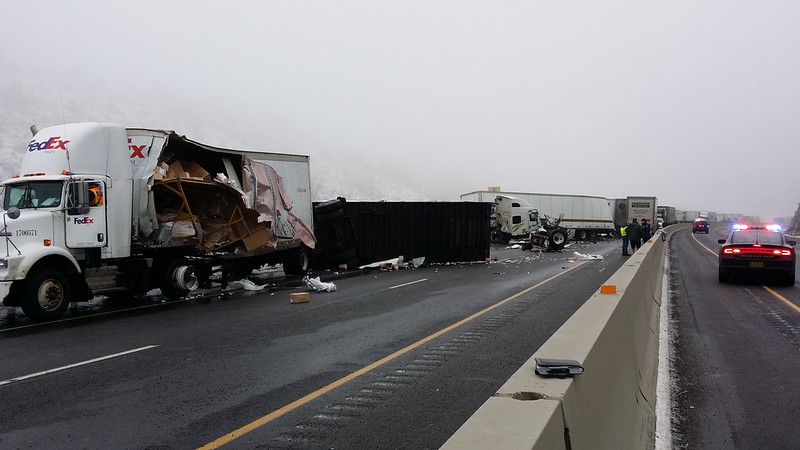In Virginia, state and federal laws require commercial truck drivers of rigs that weigh more than 10,000 GVW to carry multiple forms of insurance. These rules differ from those for people who drive their own vehicles for noncommercial purposes. Complying with the special rules for truck insurance is essential for obtaining and keeping a CDL, as well as for compensating people who get injured or killed by commercial truck drivers.
LEARN MORE
- Drunk Truckers: Causing Virginia Truck Accidents & Taking Lives
- Truck Drivers and Marijuana Use
- Alcohol-Related Truck Crashes
General freight truck drivers who operate only in Virginia must carry a minimum of $750,000 in liability insurance. A driver can hold this policy themselves, or it can be administered through the trucking company that employs them.
An at-fault truck driver’s liability coverage can be invoked by people who suffer injuries, families who lose loved ones and owners of damaged property. The $750,000 liability minimum is exactly that; a truck driver who causes a crash while operating negligently or recklessly may have more coverage. Consulting with a knowledgeable Virginia truck accident attorney will help victims discover and access all available forms of insurance.
Virginia law also requires drivers of certain rigs to carry more than the minimum liability insurance coverage, Specifically, state rules dictate
- $50,000 in liability coverage on the vehicle itself when cargo is being hauled
- $50,000 in catastrophic coverage when cargo is being hauled
- $300,000 in liability coverage when household goods are being hauled
- $1 million in liability coverage for oil tankers
- $5 million in liability coverage for hazmat haulers
Most times, a company that operates a large fleet of semis, flatbeds, tanker trucks or other commercial vehicles will carry between $10 million and $20 million dollars of liability insurance so it can pay injury and wrongful death settlements or verdicts without being forced out business.
Drivers who operate across the state lines of Virginia must comply with all of the Virginia-specific rules and with insurance rules administered by the Federal Motor Carrier Safety Administration. The federal rules resemble the ones enforced by the Virginia Department of Transportation, but the cargo riders and demands for surety bonds differ. The FMSCA posts its rules here.
Importantly, a truck driver’s insurance policy does not satisfy federal financial responsibility requirements unless the insurer is legally authorized to issue such policies in each state where the truck operates or unless the insurer is legally authorized to issue such policies where the truck has its principal place of business. A personal injury or wrongful death attorney will know how to check this.
Last, a tractor-trailer, log tuck or tanker will typically have additional coverage on the cab—the tractor—that is separate and above the liability insurance on the trailer.
EJL